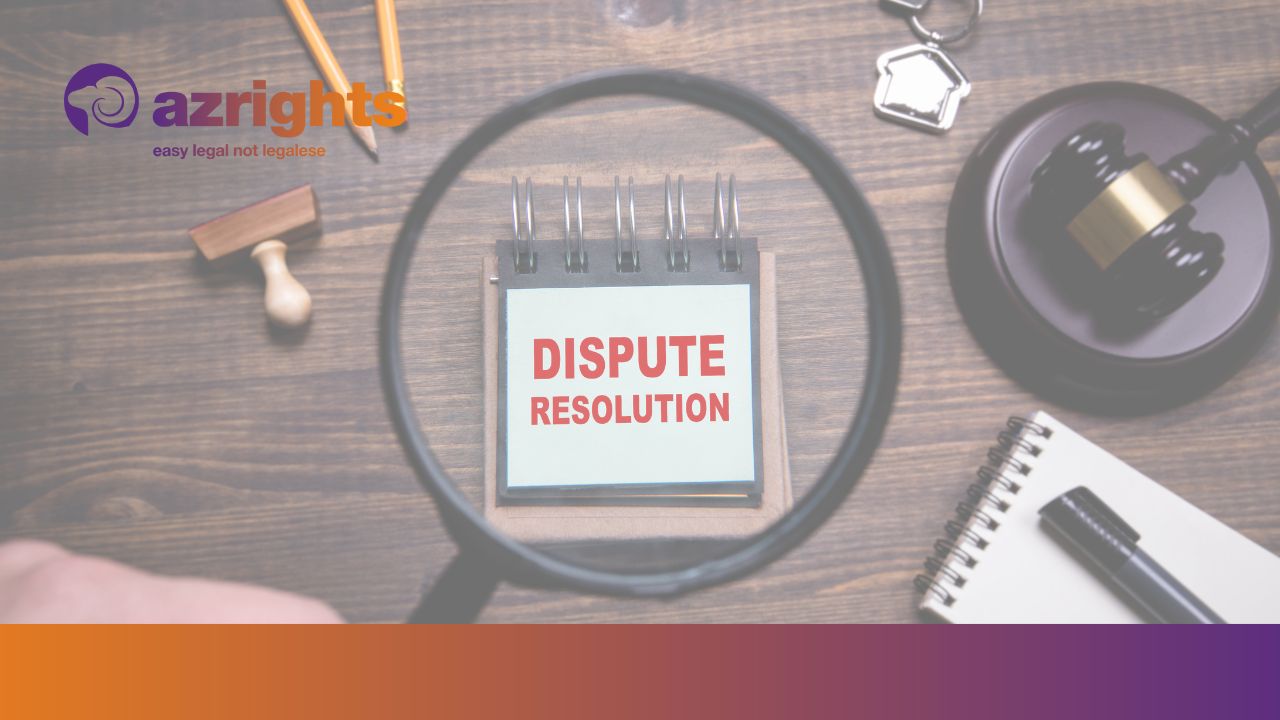
Dispute Resolution Options
When you become involved in any dispute, you will want to know what dispute resolution options are available to you.
Litigation is the approach that usually springs to mind, but it is only one of a number of possible options.
Certainly, as a starting point the involvement of solicitors, and the threat of litigation can sometimes suffice to lead to satisfactory resolution of disputes through negotiations. The main dispute resolution options are:
- Negotiation
- Alternative Dispute Resolution including mediation and arbitration
- Litigation
The dispute resolution option that is most suitable depends on a number of factors, including the nature of the dispute.
Negotiation
If simple negotiations with your opponent are not appropriate or do not resolve your dispute you are likely to turn to lawyers for assistance.
Lawyers are often able to reach a satisfactory dispute resolution, through negotiations because the threat of the court process which hangs over the negotiations often leads to a negotiated solution.
So, negotiation can be highly effective.
For IP disputes negotiation may include sending a letter before action or a cease and desist letter in which your case is set out. This demonstrates to your opponent that you are taking the matter seriously. The prospect of more costly formal proceedings may concentrate the mind of the other party and result in the resolution of a dispute.
Litigation
Litigation is the likely next step if the initial letters do not lead to a negotiated outcome. Once proceedings are commenced the dispute resolution goes through the courts.
Barristers are generally appointed as they have rights of audience before the courts, and are experts in court procedure. Their involvement on a case gives litigants a far better chance of success.
Unfortunately, litigation can be long, and costly. Nevertheless, for some situations it may well be the best approach. Although arbitration is often referred to as an alternative form of dispute resolution, it is similar to the court process in that a third party will reach a decision about the rights and wrongs of the situation, and that decision is binding on the parties. One significant benefit of arbitration over litigation though is that the proceedings will be confidential.
Alternative Dispute Resolution
Where the legal rights and wrongs of the situation are of secondary importance to the commercial considerations such as cost or speed or preserving the relationship between the parties Alternative Dispute Resolution methods such as mediation really come into their own.
ADR can be cost effective and unlike litigation is confidential. It helps preserve relationships. However, if alternatives do not lead to a result then litigation is the only real option for reaching an outcome.
As commercial lawyers we are able to advise on the best way to address your particular dispute problems.

